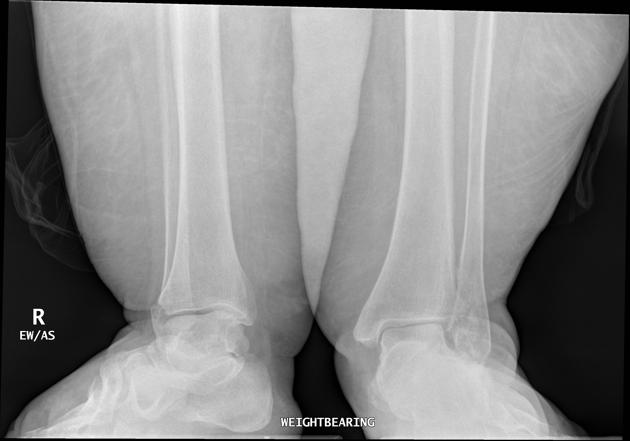Prader-Willi syndrome is a rare genetic disorder. It is the most common cause of obesity caused by a genetic syndrome.
On this page:
Clinical presentation
Prader-Willi syndrome is primarily characterized by:
neonatal hypotonia
sexual infancy: hypogonadism
-
morbid obesity resulting from hyperphagia is amplified by decreased energy expenditure and reduced physical activity
hyperphagia has often been proven refractory to all psychopharmacological interventions
intellectual disability
short stature
Pathology
Genetics
Prader-Willi syndrome results from a mutation (deletion or partial deletion) in the molecular composition of a critical region of chromosome 15q11.2-13.
Radiographic features
Reported radiographically detectable features in childhood include 2:
abnormalities of the calvarium and sella turcica
small hands and feet with thin cortices and over-tubulated bones, and unequal extremities
advanced dental caries
Sometimes later consequences such as early degenerative changes (non-specific) from morbid obesity may be seen.
Differential diagnosis
fragile X syndrome: a very similar condition (referred to as Prader-Willi phenotype) may also be encountered 6





 Unable to process the form. Check for errors and try again.
Unable to process the form. Check for errors and try again.